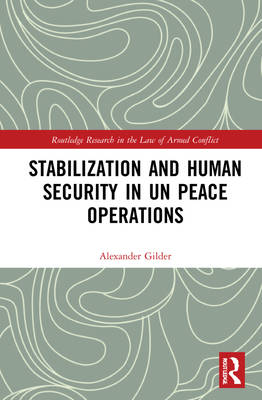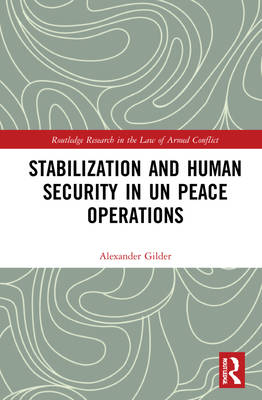
- Retrait gratuit dans votre magasin Club
- 7.000.000 titres dans notre catalogue
- Payer en toute sécurité
- Toujours un magasin près de chez vous
- Retrait gratuit dans votre magasin Club
- 7.000.0000 titres dans notre catalogue
- Payer en toute sécurité
- Toujours un magasin près de chez vous
Stabilization and Human Security in Un Peace Operations
Alexander GilderDescription
UN peace operations are increasingly asked to pursue stabilization mandates with lofty expectations of being able to stabilize conflict zones, achieve national reconciliation, and rebuild state legitimacy. This book investigates the relationship between UN stabilization mandates and the concept of 'human security'.
The book is divided into three parts. Part I outlines the emergence of stabilization and other trends in peacekeeping practice and outlines an analytical framework of human security. Part II applies the analytical framework to case studies of MINUSMA, MINUSCA, and UNMISS examining issues, such as human rights, empowerment, protection, and vulnerability. In Part III the book draws out several concerns that arise from stabilization mandates, including the militarisation of UN peace operations and the consequences under international humanitarian law, the risks of close cooperation with the host state and engagement in counter-terror activities, and the potential clash between peacebuilding activities and militarisation.
The book will be a valuable resource for academics, policymakers and practitioners working on UN peacekeeping generally, and those specifically looking at stabilization, from the perspective of international relations, international law, peace and conflict studies, security studies and human rights.
Spécifications
Parties prenantes
- Auteur(s) :
- Editeur:
Contenu
- Nombre de pages :
- 198
- Langue:
- Anglais
- Collection :
Caractéristiques
- EAN:
- 9780367673949
- Date de parution :
- 30-11-21
- Format:
- Livre relié
- Format numérique:
- Genaaid
- Dimensions :
- 156 mm x 234 mm
- Poids :
- 476 g

Les avis
Nous publions uniquement les avis qui respectent les conditions requises. Consultez nos conditions pour les avis.






